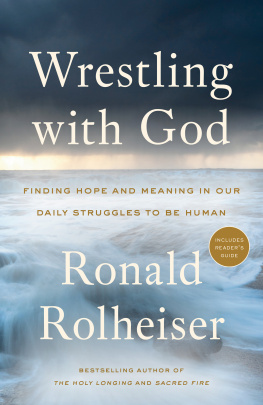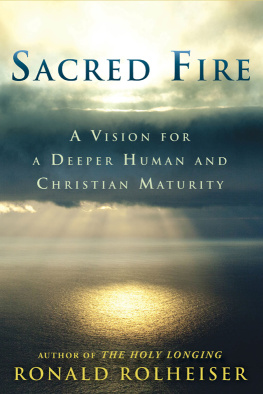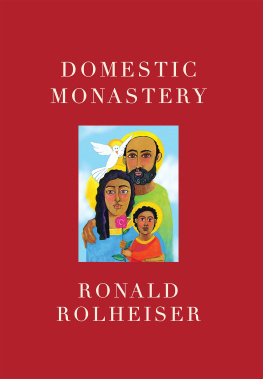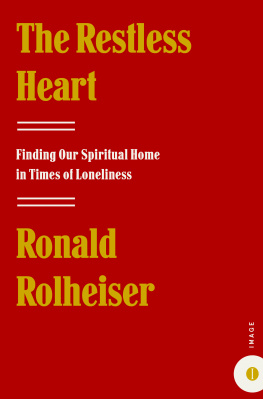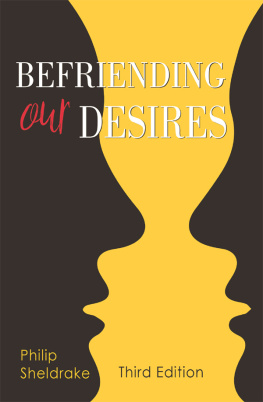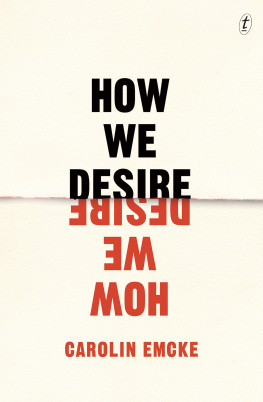Contents
Page List
Guide
The FIRE WITHIN
RONALD ROLHEISER
The FIRE WITHIN
Desire, Sexuality, Longing, and God
2021 First Printing
The Fire Within: Desire, Sexuality, Longing, and God
Copyright 2021 by Ronald Rolheiser
Scripture texts in this work are taken from the New American Bible, revised edition 2010, 1991, 1986, 1970 Confraternity of Christian Doctrine, Washington, D.C. and are used by permission of the copyright owner. All Rights Reserved. No part of the New American Bible may be reproduced in any form without permission in writing from the copyright owner.
ISBN 978-1-64060-666-1
The Paraclete Press name and logo (dove on cross) are trademarks of Paraclete Press.
Library of Congress Cataloging-in-Publication Data
Names: Rolheiser, Ronald, author.
Title: The fire within : desire, sexuality, longing, and God / Ronald Rolheiser.
Description: Brewster, Massachusetts : Paraclete Press, 2021. | Summary: Christianity has struggled mightily with sex, and so too have most other religions, yet when we look at sexual desire and ask where it comes from, there can be only one answer: it comes from God-- Provided by publisher.
Identifiers: LCCN 2020044727 (print) | LCCN 2020044728 (ebook) | ISBN 9781640606661 (tradepaper) | ISBN 9781640606678 (epub) | ISBN 9781640606685 (pdf)
Subjects: LCSH: Sex--Religious aspects--Christianity. | Desire--Religious aspects--Christianity.
Classification: LCC BT708 .R567 2021 (print) | LCC BT708 (ebook) | DDC 233/.5--dc23
LC record available at https://lccn.loc.gov/2020044727
LC ebook record available at https://lccn.loc.gov/2020044728
10 9 8 7 6 5 4 3 2 1
All rights reserved. No portion of this book may be reproduced, stored in an electronic retrieval system, or transmitted in any form or by any meanselectronic, mechanical, photocopy, recording, or any otherexcept for brief quotations in printed reviews, without the prior permission of the publisher.
Published by Paraclete Press
Brewster, Massachusetts
www.paracletepress.com
Printed in the United States of America
CONTENTS
PREFACE
At the age of eighteen, I entered religious life and began what is called novitiate. We were a group of twenty, all of us in our late teens or early twenties, and despite our commitment to religious life we were understandably restless, lonely, and fraught with sexual tension. One day we were given a talk from a visiting priest who began his conference with this question: Are you guys a little restless? Feeling a bit cooped up here? We nodded. He went on: Well, you should be! You must be jumping out of your skins! All that young energy, boiling inside you! You must be going crazy! But its okay; thats what you should be feeling if youre healthy! Its normal, its good. Youre young; thats what youth feels like!
Hearing this freed up something inside me. For the first time, in a language that actually spoke to me, someone had given me sacred permission to be at home inside my own skin.
It is normal to feel restless as a child, lonely as a teenager, and frustrated by lack of intimacy as an adult; after all, we live with insatiable desires of every kind, none of which will ever find complete fulfillment this side of eternity.
Where do these desires come from? Why are they so insatiable? What is their meaning?
The Catholic catechisms I was instructed from as a young boy and sermons I heard from the pulpit essentially answered those questions, but in a vocabulary far too abstract, theological, and churchy to do much for me existentially. They left me sensing there was an answer, but not one for me. So, I suffered my loneliness quietly. Moreover, I agonized because I felt that it was somehow not right to feel the way I did. My religious instruction, rich as it was, did not offer any benevolent smile from God on my restlessness and dissatisfaction. Puberty and the conscious stirring of sexuality within me made things worse. Now not only was I restless and dissatisfied, but also the raw feelings and fantasies that were besetting me were considered positively sinful.
That was my state of mind when I entered religious life and the seminary. Of course, the restlessness continued, but eventually my philosophical and theological studies gave me some understanding of what was so relentlessly stirring inside me and gave me sacred permission to be okay with that.
As I look back on my studies, a number of salient persons stand out in helping me understand the wildness, insatiability, meaning, and ultimate goodness of human desire. The first was St. Augustine. The now-famous quote with which he begins his Confessions: You have made us for yourself, Lord, and our hearts are restless until they rest in you, has forever served me as the key to tie everything else together. With that as my key for synthesis, I met this axiom in Thomas Aquinas: The adequate object of the intellect and will is all being as such. That might sound abstract, but even as a twenty-year-old, I grasped its meaning: in brief, what would you need to experience to finally say, I am satisfied. Enough! Aquinass answer: Everything!
Later in my studies, I read Karl Rahner. Like Aquinas, he too can seem hopelessly abstract when, for instance, he defines the human person as Obediential potency living inside a supernatural existential.
Finally, in my studies, I met the person and thought of Henri Nouwen. He continued to teach me what it means to live with your own pathological complexity, and he articulated this with a unique genius and in a fresh vocabulary. Reading Nouwen was like being introduced to myself, while still standing inside all my shadows. He helped give me the sense that it is normal, healthy, and not impure or unholy to feel all those wild stirrings with their concomitant temptations inside me.
Desire, restlessness, and sexuality constitute a formidable trinity.
Each of us is a bundle of untamed eros, of wild desire, of longing, of restlessness, of loneliness, of dissatisfaction, of sexuality, and of insatiability. Inside all that disquiet we need two things: an understanding of why (as Pascal once said) we cannot sit still in a room for one hour, and sacred permission to know it is normal and good to feel that way. In short, we need to know that our restlessness makes sense and that God is smiling on it.
One extra note on the particular restlessness we call sexuality. For most religious people, the words God and sex never go together. God is conceived of as holy, pure, sexless, and as morally above the raw desires that so powerfully beset us. Sex, on the other hand, is conceived of as earthy and unholy, something we must snatch, and not without guilt, from the gods. Christianity has struggled mightily with sex; so too have most other religions. It is hard to look with unblinking eyes at the perceived tension between God and sex. Piety and propriety prohibit it, and it is noteworthy that in the three great religious traditions that ultimately worship the same God, Judaism, Christianity, and Islam, God is conceived of in the popular mind as a male celibate, masculine with no wife. So it is understandably difficult to postulate that sexuality finds its origins in God and even harder to not believe that those powerfully raw and earthy desires we feel are not at odds with what is pure and holy. And yet when we look at sexual desire and ask where it comes from, there can be only one answer. It comes from God. The same is true for its meaning.


